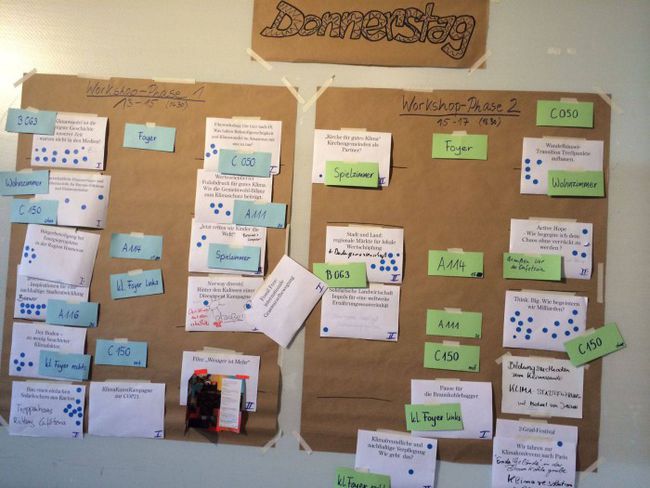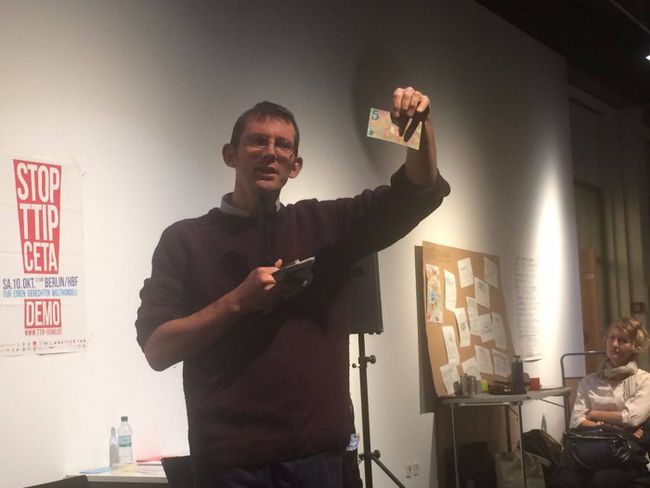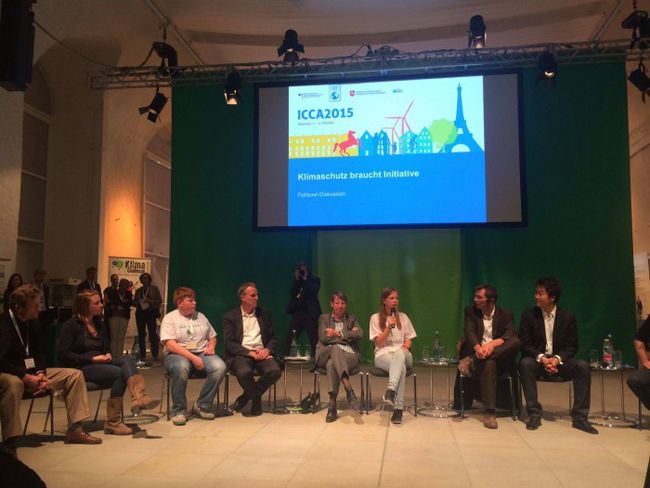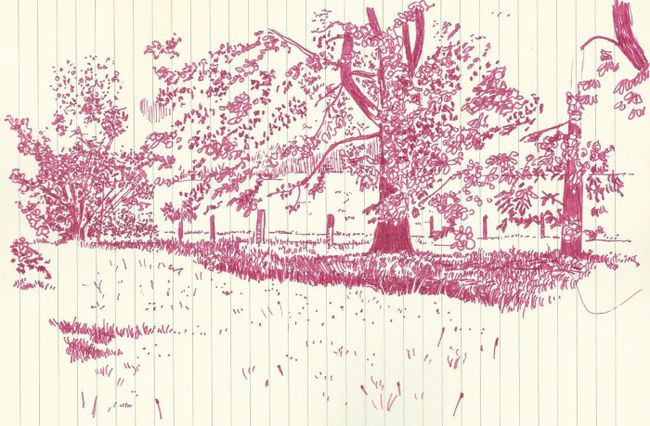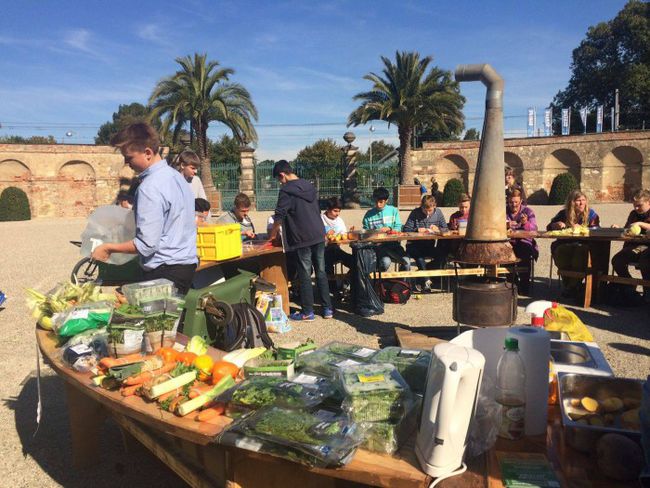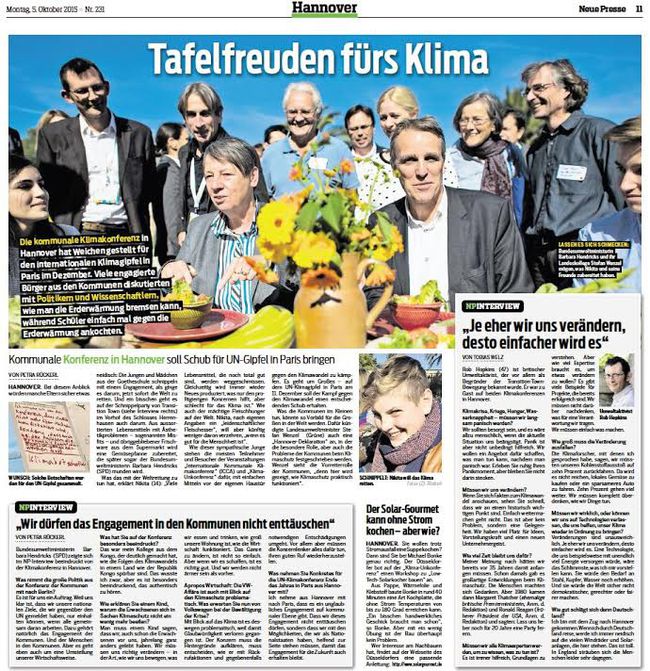5 Oct 2015
Hannover: City of Possibilities.
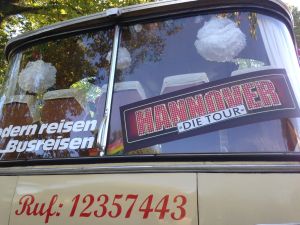
Lay out the map of Hannover and the first thing that strikes you is the amount of green space in the city. About 25% of the city is green space, it includes a forest, and it is home to 20,000 ‘Kleingärten’ (small gardens), which are larger than allotments, and managed by associations. It also has a number of waterways running through it. I was visiting Hannover to speak at two different conferences, happening simultaneously, on opposite sides of the road from each other.
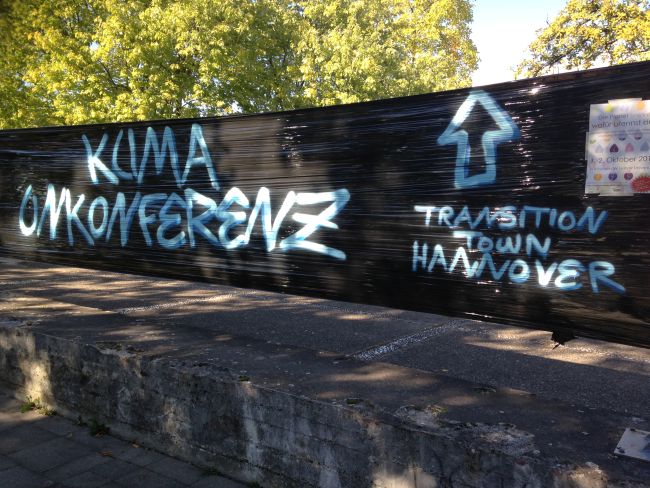
The first was the UnKonferenz, organised by Transition Town Hannover. It was a climate change conference that featured lots of workshops, Open Space, and room for things to just self-organise. The whole thing was run on virtually no money, and was really rather lovely. I sat in on a rather interesting Fishbowl thing, in which members of Transition groups from across Germany talked about what they were doing.
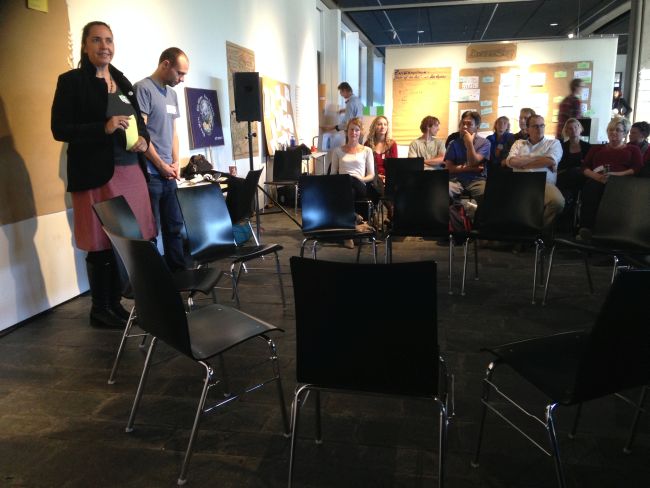
The Unkonferenz was a new and important development in the evolution of Transition in Germany because climate protection is mostly a field addressed by other, much larger NGOs. Also, the Unkonferenz brough together a wide diversity of organisations, activitsts, associations and NGOs from across the spectrum of bottom-up group in a space that enabled sharing, exchange and listening. It was also an event where the first steps were taken towards holding the first Local Entrepreneur Forum in Germany next year.
Later that evening, I gave a presentation, presenting some of our forthcoming ’21 Transition Stories’, as well as having a conversation with Maaret Westphely, a Green Party member of the regional government. The evening ended over the road in the other conference, with an amazing modern take on an oompah band … here’s a short taste of what I enjoyed before I headed off to bed.
The next day was all based on the other side of the road, at ICCA2015, the Internationale Kommunale Klimakonferenz. This was an event focused on the role of “local governments driving transformation”, and was part of Germany’s formal build up to COP21 in Paris in December. I was part of a “high level panel” along with Stefan Wenzel, Minister for the Environment for Lower Saxony, Prof. Martin zur Nedden, Research and Managing Director at the German Institute for Urban Affairs, Dr Barbara Hendricks, the German Minister of the Environment, Henri Djombo, Environment Minister of the Republic of Congo, and Dr Hans Joachim Schellnhuber, Director of the Potsdam Institute. Dr. Hendricks and Mr Djombo gave keynote speeches and then Dr Schellnhuber gave short overviews of our perspective before we moved into a more general discussion about the role of citizens, communities and local government in the run up to Paris in December.
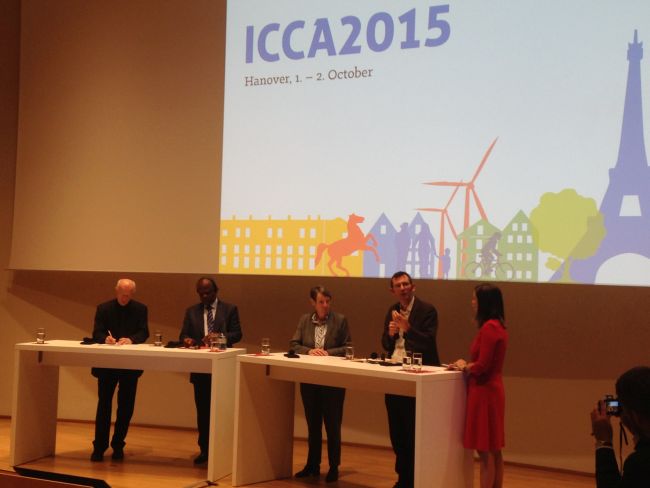
Then there was a Fishbowl event, run in the ‘Climate Neighbourhood’ fringe section of the ICCA event, again with Dr Hendricks and others, including some local school children, which was very interesting.
I then had some time off for an hour and a half, and so, given the amazing weather, I went off into the park, sat under a tree, in the sunshine, and did some drawing. Here’s my picture:
The last part of the day was a tour of some of the projects that have emerged due to the work of Transition Hannover on board an amazing old 1970s retro bus.
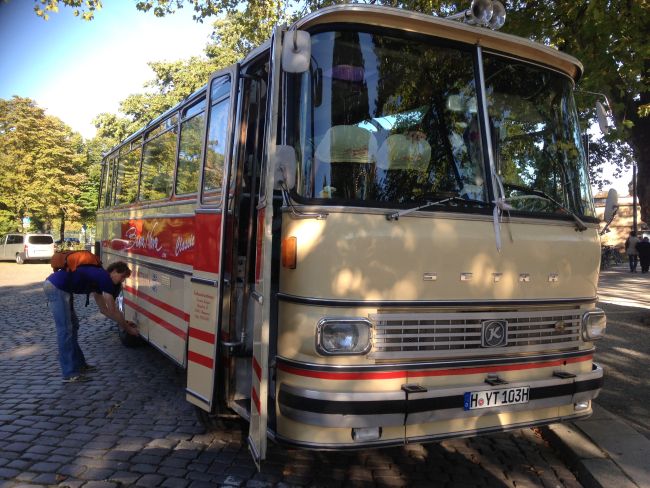
The first place was the work of Transition Hannover North, a project called Egons, “Haus der Möglichkeiten”, which translates as the “House of Possibilities”. The group have taken on one of the city’s larger ‘Kleingarten‘, one which included a small building which they are renovating. The house serves as a base for meetings and events, and the garden is being converted into a food garden, a process that requires bringing in soil as the soil onsite is so bad. The group have regular work days, and also manage a nearby plot of apple trees.
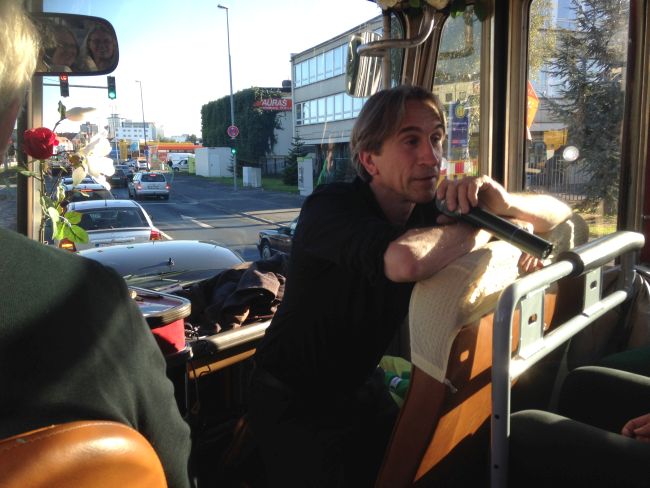
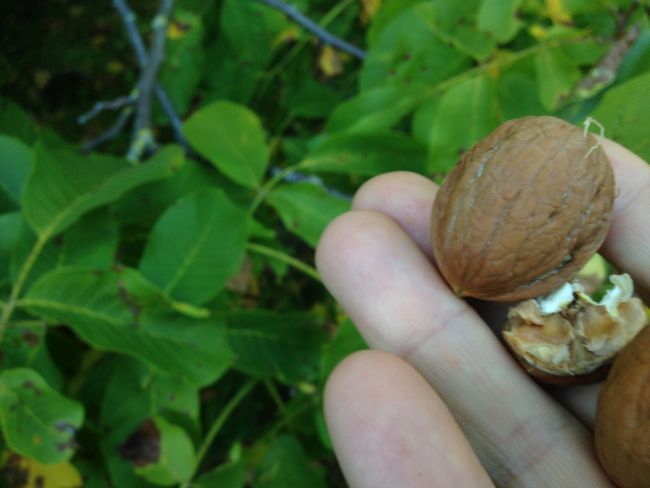
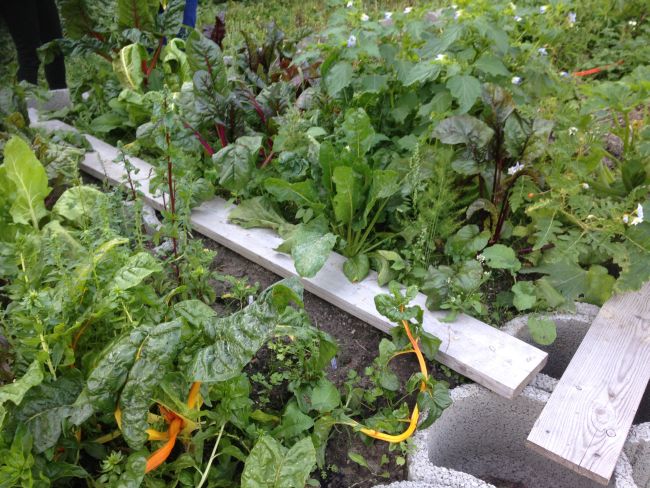
Due to time running low, we had to skip one project, which is a gardening project working with refugees, and go straight to ‘Palagalino’, a community garden set up by the Transition group in the Linden part of the city. The name Palagalino comes from “Pala” (the garden is built using pallets), “Ga” (a shortening of “Garden”), “Li” (short for “Linden”, the part of the city”) and “No” (short for “North”, as they are in the north of the city).
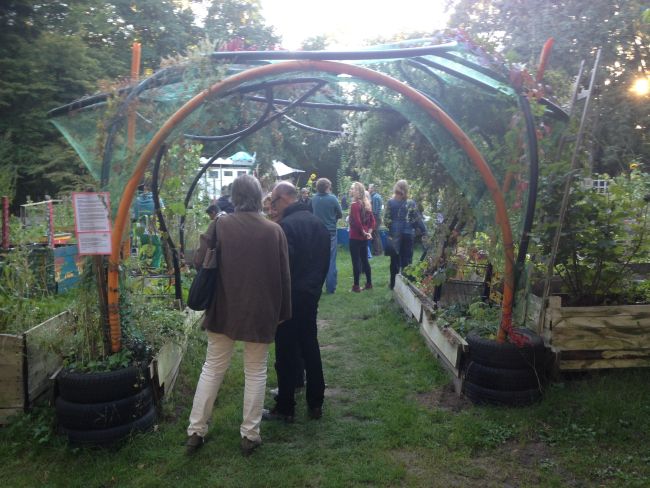
The garden is a community garden serving a large community, and it features many raised beds, which are managed by different people. Some of the beds were being run as experiments using terra preta (biochar) soils. It was a gorgeous oasis in the city, thriving with the kind of diversity and creativity that is often found in community gardens.
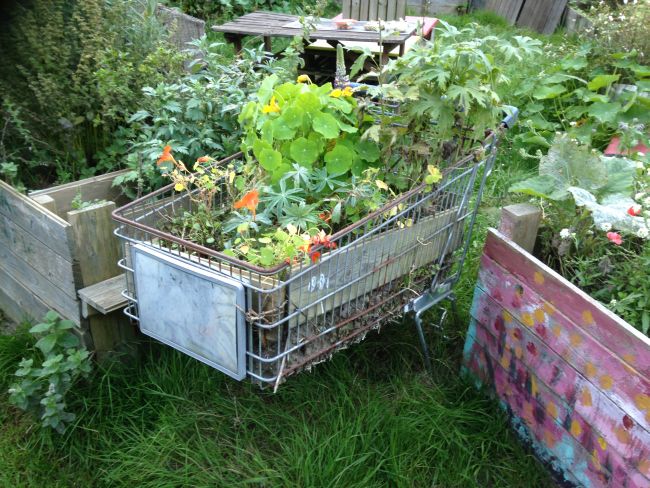
Our last stop was Mitmachgarten (which translates as the “Participatory Garden”), the most ambitious of the projects we visited. It is sited on the edge of the city, next of an area of large sports pitches, and a visitors attraction called the ‘Senses Garden’, which was created for the city’s Expo in 2000. The challenge here, rather than the somewhat more chaotic and homespun nature of the previous two gardens, was to create something smart and landscaped enough that it would inspire confidence in the site’s organisers that Transition Hannover could expand and take over more of the park.
The garden was in two parts. The first, along the route of a jogging track around the park, was designed as a perennial edible rest stop, planted with blueberries and other fruits so as to act as a kind of natural and healthy pick-your-own pitstop. The main garden has been created by a team of unemployed adults as well as a paid core staff. It was a beautiful space, designed both for food production (some of what they grow goes to a local restaurant) and for wildlife. The garden is designed to maximise biodiversity, with a pond, and all sorts of habitats for different creatures. It is also designed so as to create habitats for several different kinds of bees, featuring a rather fine Bee Hotel.
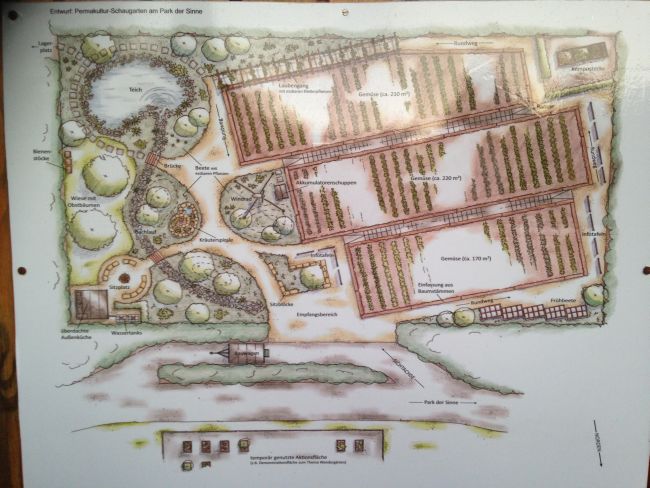
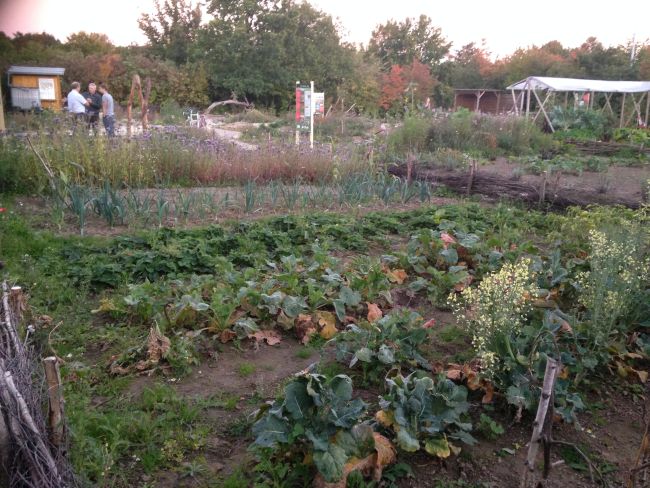
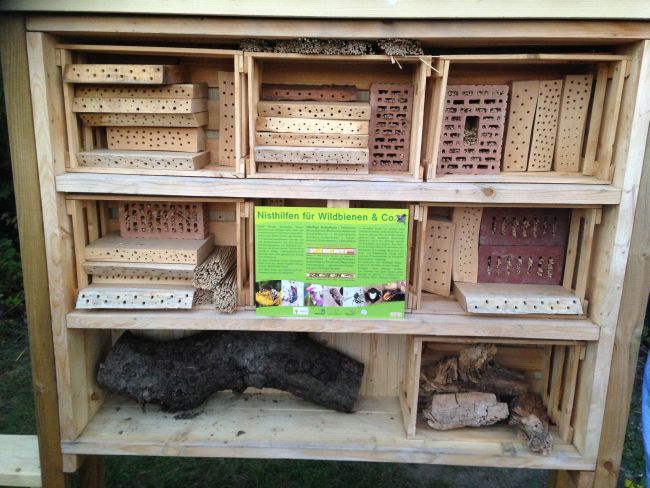
It appears that in Hannover, the bulk of the efforts of Transition groups goes into food growing projects, although this isn’t the case everywhere in Germany. It felt really useful to be able to act as one of several bridges between the two conferences, to be able to fly the Transition flag (it’s very nice, you should see it) in the high level panel. Thomas, one of the co-ordinators of Transition Hannover said “your visit has helped us to take things here to another level”, which was good to hear. After such a warm welcome, and meeting so many great people, it’ll be interesting to hear how things develop going forward.
Thanks to everyone of Transition Hannover, Dr Thomas Köhler, Stephanie Ristig-Bresser, Anja and Kai, my hosts, everyone at Adelphi, who invited me to speak at ICCA, Gerd Wessling for joining me on the train, and all the wonderful people I met.
